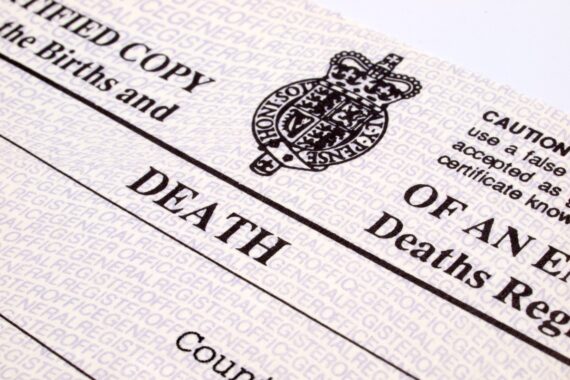Coroner highlights systemic GP record sharing error after patient death

A prevention of future deaths report has highlighted confusion among health organisations over the sharing of patient data between GP practice IT systems.
A patient’s relevant surgery history was not available to the GP out-of-hours (OOH) service which misdiagnosed him before his death, the GP provider confirmed to Pulse.
John Charles Spencer died on 21 May last year after a consultation with a GP OOH service where he was given an incorrect clinical diagnosis of gastroenteritis.
The OOH service was unable to access the part of his GP medical history which recorded he had suffered from a right inguinal hernia in 2010.
In the prevention of future deaths report, assistant coroner Edward Steele expressed concern key medical information may be missed between GP practices and OOH services using different IT systems.
Mr Spencer’s death, the day after his consultation, was caused by purulent peritonitis secondary to a bowel perforation, ’caused by a section of the small bowel getting stuck and becoming obstructed within a right inguinal hernia, increasing the pressure within the bowel’, according to a post-mortem examination.
Mr Steele said: ‘The GP medical history summary, populated by the GP that a patient is registered to, is not always accessible to a GP out-of-hours surgery. Evidence was given that there are various reasons for this, including the patient not providing consent for the exchange of this information.
‘However, on some occasions, even when a patient has consented, the patient record systems utilised by the GP-registered practice and the GP out-of-hours surgery […] prevented the exchange of information into the GP out-of-hours surgery.
‘This situation generates a concern that, providing the patient has consented, key medical information may not be conveyed to the GP out-of-hours surgery which should be accessible to allow the appropriate exchange of medical information to inform what examinations should take place in an out-of-hours setting.’
Dr Stephanie Mason, a GP partner and PCN clinical director based at Holderness Health told Pulse: ‘The information would not be included in the summary care record.
‘I do not know specifically if other views can be accessed by OOH service with patient consent.’
The GP Connect service allows limited access to the medical summary for all healthcare professionals when the patient consents or in emergency settings.
But Holderness Health said GP Connect ‘generally only includes significant active problems, allergies and medication’ in its response to the report.
‘In this case I note Mr Spencer’s surgery was carried out 14 years ago with no subsequent contacts or symptoms relating to this, so this would not generally be considered as a significant or currently active problem’, it said.
In its response to the report, East Yorkshire-based provider Holderness Health said it ‘had a planned clinical IT system migration from EMIS to TPP SystmOne on 13 May 2024, with GP Connect enabled’.
Holderness Health confirmed to Pulse this had gone ahead on that date as scheduled.
However despite this, RCGP and NHS England’s letters to the coroner appeared to assume the migration had not yet taken place at the time of the patient’s consultation.
The RCGP suggested that, if it had, the relevant part of his record may have been flagged.
It said: ‘We recognise that the GP Practice ‘Holderness Health’ have written to you confirming that they had a planned clinical IT system migration from EMIS to TPP System One on the 13 May 2024.
‘This planned migration, had it occurred, could have enabled the sharing of records through GP Connect and avoided the tragic circumstances.’
Pulse has asked RCGP for further comment.
In its own response letter, NHS England said: ‘We note that their practices, included the Hedon Group Practice where John was registered, have now migrated from EMIS to TPP SystmOne, with GP Connect enabled, and that a key reason for doing so was interoperability between local community systems.’
The CQC said it had sent its response letter within the allowed timeframe but that it had not yet been published on the coroner report website.
Pulse has reached out to TPP for comment. Optum (formerly EMIS) did not comment on the report.
Related Articles
READERS' COMMENTS [2]
Please note, only GPs are permitted to add comments to articles













Whatever happened to taking a detailed history from the patient of previous illnesses and surgeries and examining them?
I don’t think we are getting the full story here. Any competent doctor would surely be able to diagnose such a sick patient and admit them? I think there is a lot left out here.